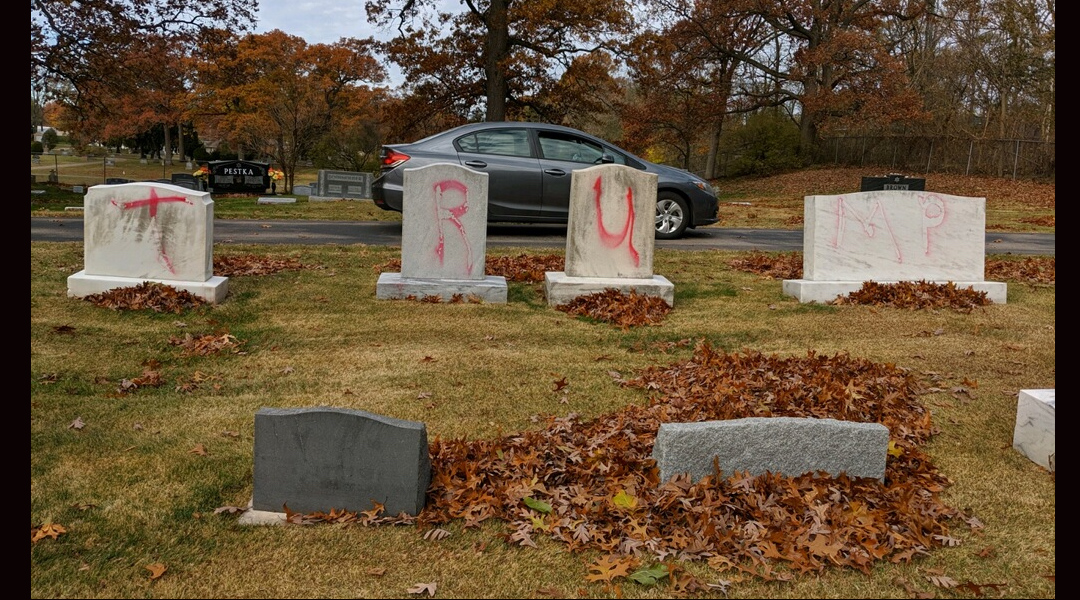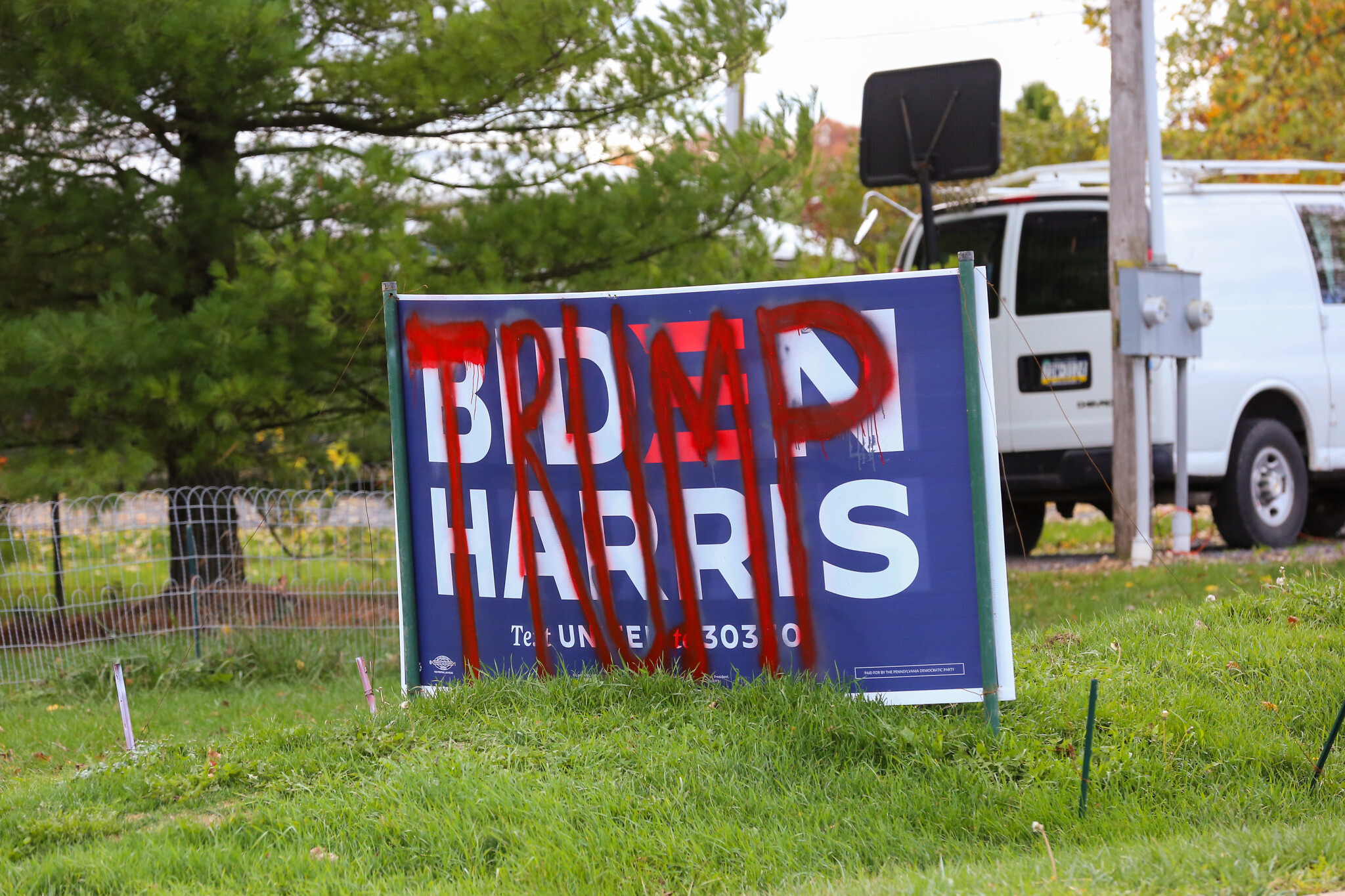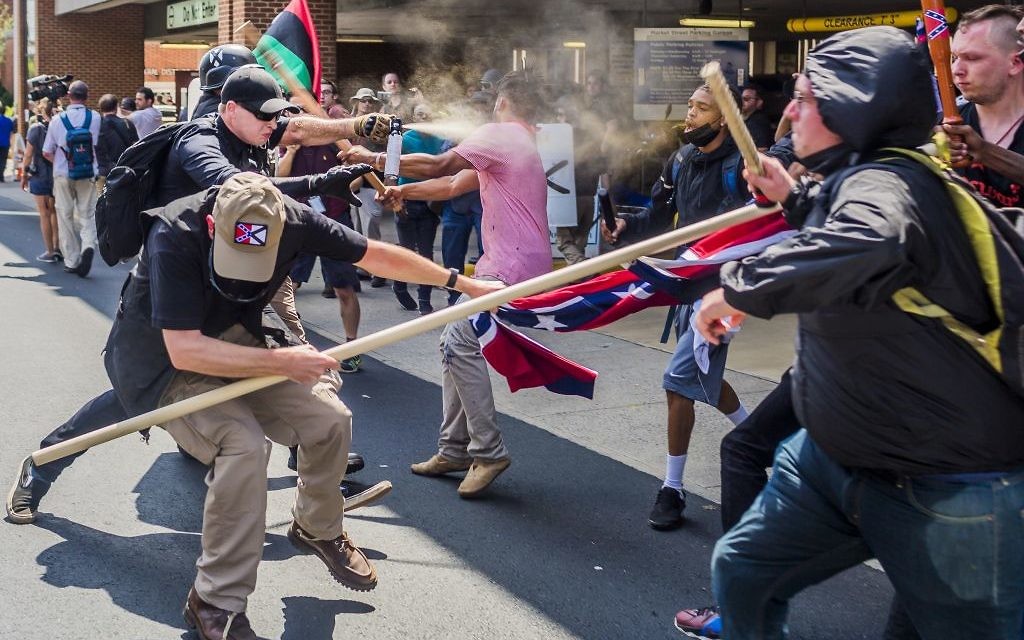US Election: Why hate and division might endure
Even under President-elect Joe Biden, American Jews fear the country will remain as divided as it was under Donald Trump
After a gruelling election campaign and contentious result, the country is just as spilt down the middle as it was four years ago. While Democrat Joe Biden is now president-elect, tens of millions of people have thrown their support behind former president Donald Trump, who most American Jews believe advances values far from their own.
“We are an incredibly divided country, and that was something we knew before yesterday, and something we know today,” says Jeremy Burton, executive director of the Boston Jewish Community Relations Council.
“There are certain people in the Jewish community who were hoping this would be a massive rejection of Trumpism, and no matter what the final outcome is in the electoral college or the Senate, this is not a massive rejection.”
Get The Jewish News Daily Edition by email and never miss our top stories Free Sign Up
Liberal Jews fear this means that even with the defeat of Trump, the ideology he represents has staying power. They worry that his harsh policies against undocumented immigrants and refugees, in addition to the rising antisemitism of the past four years, are supported or condoned by a large portion of their country.
“The atrocities of the past four years haven’t made a difference to a lot of people,” says Rabbi Salem Pearce, executive director of Carolina Jews for Justice, a progressive activist group.
“There are some things that are beyond the pale and thinking that is not
a function of where you live.”
Some Jews have blamed Trump for creating a climate friendly to antisemitism, even as his supporters counter that he has condemned hate and defended Jewish interests through a string of pro-Israel actions.
Deborah Dash Moore, a Jewish history professor at the University of Michigan, pointed to the defacing of Jewish gravestones with pro-Trump graffiti in the western Michigan city of Grand Rapids.

While the vandalism, which was discovered just before election day, is not being investigated as a hate crime, she believes that it speaks to a newfound acceptance of antisemitism in the US that the election results do not repudiate.
“I’m really struck by how divided the country is and how much licence has now been given, for example, to antisemitism,” she says.
“I couldn’t imagine the smearing of a gravestone with the name of the president… Since the end of the 1960s, you haven’t seen that kind of politicised antisemitism, which is what this is. That has been absent, it has been underground, it hasn’t been expressed.”
Concerns about the country’s enduring polarisation, or the vote legitimising Trump’s ideology or empowering extremists, are not limited to Jews.
Heather Segal, an immigration lawyer in Canada who has seen a substantial uptick in calls from the US this year, says she received six more since election day – all lamenting the state of the country no matter the winner.
In recent months, she has been working with some 50 to 70 clients in the US on either moving to Canada or obtaining Canadian citizenship, which she called a “huge” increase over previous years. The calls and emails she has received, she says, are almost all from people, many Jewish, who were scared of a second Trump term.
“[They’re] saying things like, even if Biden wins, what this has shown me is how divided our country is,” she says of callers on Tuesday and Wednesday, adding that they say: “‘It’s such a tragedy and failure of democracy.’ People are concerned and also [there’s] fear, a lot of fear.”

Jewish communal professionals attribute part of the divide to geographic polarisation within and between states, something they think Jews should take action to minimise.
Maharat Rori Picker Neiss, executive director of the St. Louis Jewish Community Relations Council, said that because Jews mostly live in Democratic states and in urban areas, they don’t have contact with the people who have a different vision of the country from them.
“The conversations that are happening on the coasts are very different from the conversations happening in the Midwest,” she explains. “We as a Jewish community need to be doing more in terms of interacting with those rural areas…
“We want to have a Jewish presence in those parts of the country. That also facilitates understanding in terms of people who don’t have the opportunity to meet Jews or interact with Jews.”
But some progressive Jews say nothing could mitigate against the fact that many Americans voted to validate policies they see as deeply immoral. They are disappointed that this year’s election did not repudiate, for example, Trump’s more controversial immigration actions, such as housing migrant children in cages, or reject the idea that America should be closed off to refugees.
Republican Jews say it’s unfair to paint all Trump voters as racist, when people choose whom to support for myriad reasons.
But Josh Kantrow, a conservative political commentator from Chicago, says he hoped that Republican electoral success would not always cause concern among minority groups.
“I want the Republican party to continue to do more outreach to build a wide coalition,” he said. “The Republican party is still seen as too many white people and white men and white Christians. We need to be the party that groups that feel disadvantaged can feel at home in.”
No matter where Jews fall on the political spectrum, Rabbi Avi Shafran fears that the country’s divisiveness, and the ideological polarisation and extremism that have accompanied it, do not bode well for the Jews.
“The divide among Americans remains as deep as ever, which is tragic,” Shafran, a spokesman for the Charedi Orthodox Agudath Israel of America said.
“When there is social upheaval, it is never good for Jews. And with Jews prominent on both sides of the political divide, those inclined to blame Jews for the world’s ills will, sadly, see the Jewish community as
their enemy.”

Thank you for helping to make Jewish News the leading source of news and opinion for the UK Jewish community. Today we're asking for your invaluable help to continue putting our community first in everything we do.
For as little as £5 a month you can help sustain the vital work we do in celebrating and standing up for Jewish life in Britain.
Jewish News holds our community together and keeps us connected. Like a synagogue, it’s where people turn to feel part of something bigger. It also proudly shows the rest of Britain the vibrancy and rich culture of modern Jewish life.
You can make a quick and easy one-off or monthly contribution of £5, £10, £20 or any other sum you’re comfortable with.
100% of your donation will help us continue celebrating our community, in all its dynamic diversity...
Engaging
Being a community platform means so much more than producing a newspaper and website. One of our proudest roles is media partnering with our invaluable charities to amplify the outstanding work they do to help us all.
Celebrating
There’s no shortage of oys in the world but Jewish News takes every opportunity to celebrate the joys too, through projects like Night of Heroes, 40 Under 40 and other compelling countdowns that make the community kvell with pride.
Pioneering
In the first collaboration between media outlets from different faiths, Jewish News worked with British Muslim TV and Church Times to produce a list of young activists leading the way on interfaith understanding.
Campaigning
Royal Mail issued a stamp honouring Holocaust hero Sir Nicholas Winton after a Jewish News campaign attracted more than 100,000 backers. Jewish Newsalso produces special editions of the paper highlighting pressing issues including mental health and Holocaust remembrance.
Easy access
In an age when news is readily accessible, Jewish News provides high-quality content free online and offline, removing any financial barriers to connecting people.
Voice of our community to wider society
The Jewish News team regularly appears on TV, radio and on the pages of the national press to comment on stories about the Jewish community. Easy access to the paper on the streets of London also means Jewish News provides an invaluable window into the community for the country at large.
We hope you agree all this is worth preserving.
-
By Laurent Vaughan - Senior Associate (Bishop & Sewell Solicitors)
-
By Laurent Vaughan - Senior Associate (Bishop & Sewell Solicitors)
-
By Laurent Vaughan - Senior Associate (Bishop & Sewell Solicitors)
-
By Laurent Vaughan - Senior Associate (Bishop & Sewell Solicitors)























